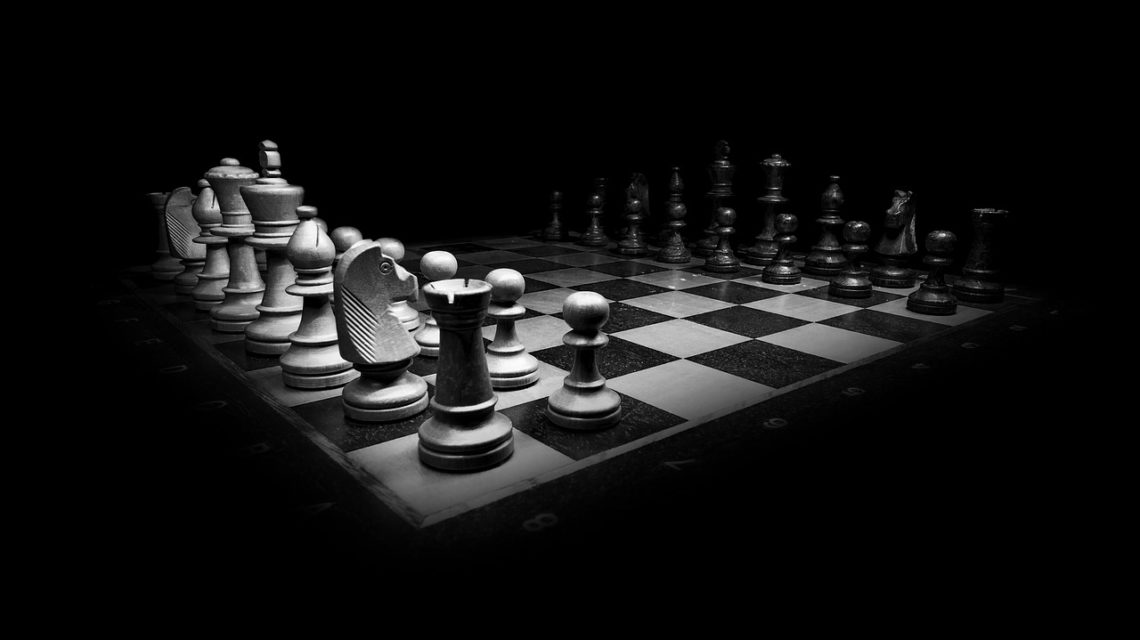by Sean Clapp As generations replace each other, our culture changes. Today, with the technology of the twenty-first century, aspects of our culture, such as parenting standards, and the expectations of an individual’s capabilities, are subject to a change we as humans have never seen before. With this new development, it has become much more critical for parents and our schools to teach future generations how to understand and appreciate life without modern benefits, and even learn to function in a world without these benefits, should they need to. If today’s children do not become proficient in the natural, physical, and mental aspects of creativity and survival, we as…
-
-
Yoga is Exercise
by Madeline Sadler Yoga has been around for hundreds of years. It has been used as a form of mediation, a religious activity in religions such as Hinduism and Buddhism, and so much more. It’s primary purpose when created was to calm the mind and body as a form of self-care for yourself and honor your higher being. The definition of yoga is, “a system of physical postures, breathing techniques, and sometimes meditation derived from Yoga but often practiced independently especially in western cultures to promote physical and emotional well-being,” according to the Merriam-Webster dictionary. Following this, the definition of exercise is, “bodily exertion for the sake of developing…
-
The Connection Between Us All
by Madeline Sadler “I believe there is a subtle magnetism in Nature, which, if we unconsciously yield to it will direct us aright.” Henry Thoreau wrote this quote, the famous author of Walden who discusses his connection to nature. Nature surrounds us in everything we do, whether it be us playing outside, looking out a window in a classroom, or even tending to a few house plants in our homes. There is indeed a vibration that we can feel that makes nature seem so natural to us. We are reconnecting to our roots, which is therapeutic and produces these deep sensory feelings we get every time we are around nature.…
-
Kill It First
by Sean Clapp Do animals consciously feel pain? All animals? If not, which animals? Provided the answers to these questions, would you ever consider consuming a living, possibly even a feeling thing? Most people agree that all vertebrates, such as monkeys, bears, and sharks, have the mental capacity to experience conscious pain. Thus laws have been put in place to protect these animals from live consumption. The question is still unanswered for most invertebrates, and with this question comes a moral gray area for a human’s eating habits. Surely if humans can conclude that an animal is capable of conscious suffering, then we ought not to participate in cruel…
-
Why is it Important to be Aware of What We Eat?
by Ava Evans It is much easier to pull through a drive-thru fast food lane on the way home from a stressful day than it would be to cook a homemade meal. The easy access and cheap prices are remarkably unbeatable in our never-ending fast-paced life. We begin our lives being given food when we are told it is time to eat, and as we move through life developing the ability to make choices and develop habits, the habits that we develop during our youth and into our adolescence set us up for a variety of different lifestyle choices down the road. Kids who are taught the importance of…
-
America’s Great Mistake
by Nikki Castro On Earth, human activity is impacting the natural climate over the last century. The burning of fossil fuel is contributing to the build of CO2 in the atmosphere while the population is also exhausting natural resources. “There are several causes of recent climate change, but all have something in common – people” (UCAR). Climate change happens when certain gases such as sulfur monoxide, carbon monoxide, and nitrogen oxide, are released into the atmosphere and retain the heat, a side effect from factories, agriculture, transportation that runs on gasoline, and deforestation. In the US alone there are already impacts, examples include the Northeast where the agriculture is…
-
Chess the Sport of Kings
by Kayley MacGruder There are debates all around the world on why chess is not a sport. I will tell you why it is. “Chess is an affiliate member, or fully recognized by, National Olympic Committees in 117 countries, and chess as a sport is recognized in 107 countries.” This is a line from an article written by FIDE, or Fédération Internationale des Éches which is the World Chess Federation. Many people state that there is no physical exertion, thus chess is not a sport. What they don’t consider is that your brain needs just as much training as your muscles do. Chess players are treated just like any other…
-
Why Do Humans Laugh?
by Caleb Rauch Laughter is a real puzzler in terms of evolutionary study. What possible reproductive benefits could come from hooting like a deranged owl? Why is this behaviour instinctive, while something like hunting needs to be taught? While vocalizations from play fighting are nothing special in the realm of animals, only humans and a few primate relatives explicitly create laughter when they find something amusing or to communicate complex messages. We respond almost unconsciously to social cues that promote laughter and end up laughing even when things aren’t funny. It’s a complex phenomenon, but the question is simple: what causes laughter? In the book The Humor Code, author and…
-
Smartphones: Delivering Your Daily Dose of Dopamine in a Convenient, Pocket-Sized Package!
by Addy Wright Have you ever checked your smartphone, found no notifications, and turned it off, just to find yourself checking again thirty seconds later? Rest assured, you’re not alone. The reason you and so many others get that irresistible urge to constantly check your phone is that it and the apps on it are specifically designed to be as addictive as possible. Today, smartphone addiction is so prevalent that the psychological attachment to our phones has its own name: nomophobia. This name derives from the phrase “no mobile phone phobia” (Valdesolo, n.d.). Smartphones themselves are purposefully designed to be addictive, and so is each individual application on them. If…
-
Three Books on my Nightstand
By Sara Hinojosa Editor’s note: A first-year student from Chicago, Sara Hinojosa, ’22, describes the books she couldn’t leave behind. This assignment is from Sara’s FA18 Media Writing class. When I decided on a whim to go to school in Alaska, my plan was to fit my life into a single suitcase. Though I was tempted to haul all my favorite books along, I decided on three that I’ve never finished reading: “Under the Banner of Heaven,” by Jon Krakauer, “A Man Called Ove,” by Fredrik Backman, and the Bible. I started “Under the Banner of Heaven” solely because Krakauer, a journalist, is a writer I most aspire to be like.…









